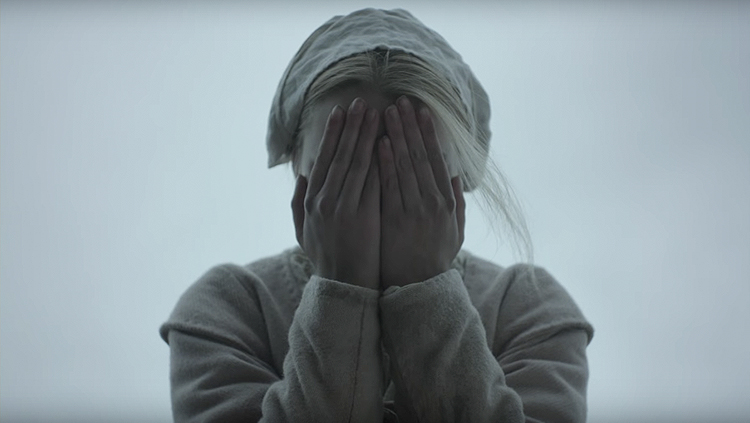
The Witch (MA15+)
Writer/Director: Robert Eggers
Review by: Jessica Craig-Piper
A self-assured departure from the slick millennial fright fests and flashy torture porn of recent decades, writer-director Robert Eggers’ eerie debut feature The Witch is in many ways a return to classic horror, and yet offers a remarkably singular cinematic experience. Thematic and aesthetic concerns reminiscent of The Crucible, The Shining and Grimms’ Fairy Tales converge in early colonialist America, where man is apparently pitted against not only the harsh frontier wilderness of New England circa 1630, but also the temptations of an ever-opportunistic devil. The immaculately designed period piece sets a tense, contemplative pace from the outset, and shows little regard for providing the titillation some audiences may have grown to expect from the genre.
Expelled from their plantation community after a religious dispute, devout patriarch William resettles his young family on a tiny isolated farm at the edge of an ancient forest. From the moment the camera first rests on the dark, imposing wood – where it frequently returns in static shots throughout the film – a pervasive sense of dread descends, from which there is little reprieve. This atmospheric unease is punctuated by the sinister, discordant strings and chilling otherworldly choir of Mark Korvan’s deeply unsettling score. The subsequent misfortune that plagues the family feels somehow inexorable in this unforgiving terrain, and even as the pious brood cling to their faith in increasingly zealous displays of supplication, crops continue to rot, hunger and poverty threaten, and hysteria-tinged desperation sets in.
Homages to familiar horror archetypes are conspicuous throughout but never feel inorganic, and the bold performances from a uniformly brilliant cast assist in lending sincerity to a narrative that might otherwise have strayed into melodramatic territory with tropes of putrefying harvests, sinful apples purged from possessed bodies and shapeshifting animal harbingers. Ralph Inerson and Kate Dickie fearlessly embody the effects of inflexible moral tyranny in their tightly wound portrayals of parents William and Kathryn, but it is the two child leads to whom the film truly belongs. Harvey Scrimshaw’s compelling turn as the tortured young Caleb is a portrait of courage and confusion, whilst eldest daughter Thomasin, verging on womanhood, is played with a mesmerising mix of dutiful innocence and furtive defiance by a wide-eyed Anya Taylor-Joy.
This spiraling journey into a puritan nightmare is grippingly authentic; the stark verisimilitude of the exquisitely rendered low budget vision a result of extensive research and meticulous design work by Eggers’ skilled team. Cinematographer Jarin Blaschke’s bleak ashen palette and beautifully composed frames, Craig Laithrop’s detailed sets and Linda Muir’s hand-sewn costumes conspire to elicit a kind of raw immediacy that somehow expunges the yawning breach of history between viewer and subject. Even the solemn, archaic dialogue – much of it lifted directly from letters and diaries of the era – throws these troubled characters into sharp relief.
The contrast is startling, then, when the first vivid supernatural sequence pierces the austere reality the film has constructed around the family. The gory ritualistic scene occurs moments after baby Samuel disappears into the foreboding trees – snatched by an unseen predator – and marks the moment the family’s psychological unravelling begins in earnest. Herein lies an ambiguity that permeates the entire piece: do these haunting glimpses of occult monstrousness actually represent the witch of the title, or are they figurative manifestations of a secluded family’s descent into madness borne of superstitious paranoia, deprivation and unsustainable fanaticism?
The answer is never definitive, and some audiences will be frustrated by the deliberate obfuscation of truth while others may find the denoument too literal and potentially unsatisfying, but perhaps this is the point. The viewer experiences the horror through the eyes of a beleaguered, god-fearing family to whom the witch is so terrifyingly palpable as to be fatal. In this way the stage for the impending Salem witch trials later that century is set with an uncanny clarity and inevitability – an ominous retroactive prophecy and an effective examination of the potential violence wrought by oppressed familial psyches fed by unchecked fear and despair.
The Witch opens across Australian cinemas from Thursday March 17th.
Exclusive in Melbourne to Cinema Nova, Carlton.


